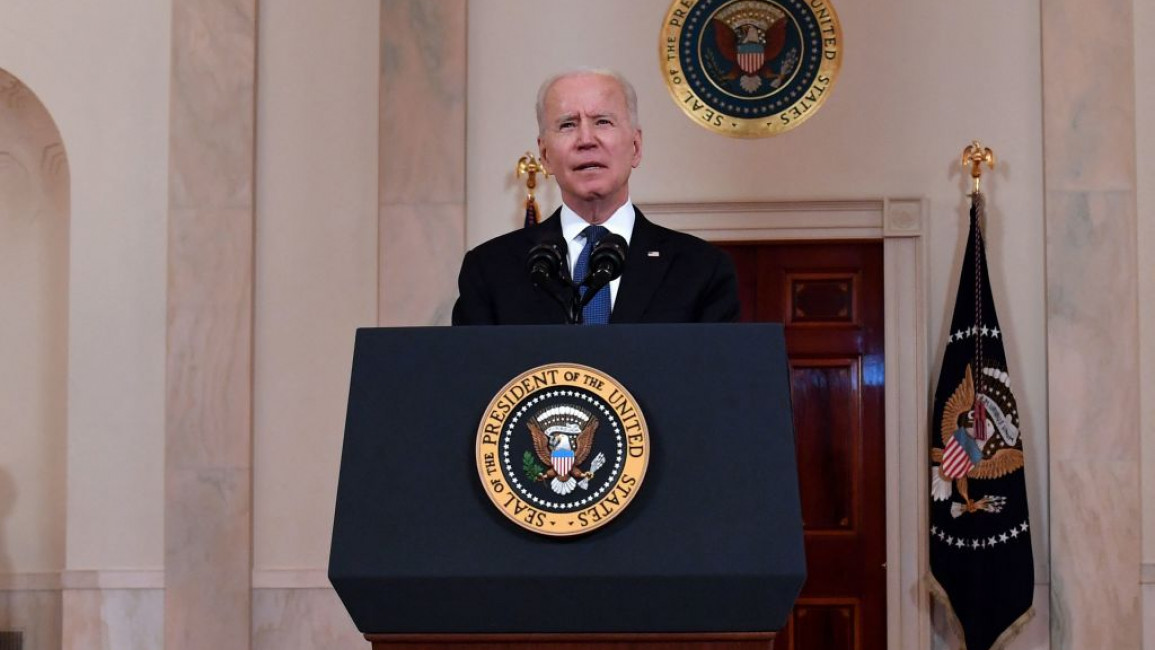West Bank in 'dangerous' economic situation, US envoy warns Israel
A US official warned Israel that the Palestinian Authority is in a "difficult and dangerous" situation economically and politically, as Tel Aviv's continued stranglehold on the Palestinian territories' resources and settlement building compound the crisis.
Hady Amr, the Deputy Assistant Secretary of State for Israel and Palestinian Affairs, met with officials from Israel’s foreign, finance and the regional cooperation ministries, according to the Walla News site, and urged them to improve relations with the PA, which has not been able to pay its staff due to the crisis.
The Palestinian authorities’ deteriorating economic situation has been worsened by Israel’s stranglehold on the West Bank's water supply, resources and the continued state-sponsored building of illegal settlements in the occupied Palestinian territories.
Joe Biden's administration has had a decidedly lukewarm response to Tel Aviv's continued occupation of the West Bank, and its escalation of violence in the besieged Gaza Strip in May, which killed over 250 Palestinians, including 67 children.
During the bombardment of Gaza, the US defended Israel’s "right to defend itself", blocked joint statements from the UN Security Council and failed to demand an immediate ceasefire.
Despite re-engaging following a cessation of hostilities, experts remain sceptical that the US administration is willing to usher in a paradigm shift, particularly regarding Hamas.
"Biden came into office without a plan for Israel/Palestine. Like many people in the US foreign policy establishment, they assumed that Palestinian suffering did not matter," Professor Nader Hashemi, Director of the Center for Middle East Studies at the University of Denver, told The New Arab last month.
In 1967 the Israeli authorities issued Military Order 158, which stated that Palestinians could not construct any new water installation without first obtaining a permit from the Israeli army.
Since then, the extraction of water from any new source or the development of any new water infrastructure would require permits from Israel, which are near impossible to obtain.
Rights groups have warned that Palestinians living under Israel's military occupation continue to suffer the devastating consequences of this order until today.
Israeli 'war crimes'
On Friday, a UN human rights investigator slammed Israel's continued settlement activity in east Jerusalem and the West Bank as a "war crime", urging on countries to inflict a cost on Israel for its "illegal occupation".
Michael Lynk, UN special rapporteur on human rights in the occupied Palestinian territories, was addressing a session of the UN Human Rights Council, boycotted by Israel which does not recognise his mandate.
"I conclude that the Israeli settlements do amount to a war crime," Lynk said.
He said the settlements violate an absolute ban on an occupying power transferring part of its civilian population into an occupied territory, thereby meeting the definition of a war crime under the Rome Statute founding the International Criminal Court (ICC).
A recent investigation by Israeli daily Haaretz found thatIsrael’s Jewish National Fund was secretly purchasing Palestinian-owned land in the West Bank in favour of Jewish settlers.
The deals reflect a behaviour that is "both problematic and questionable," the newspaper noted, condemning the conduct of an organisation founded in 1901 to buy and develop land in Ottoman Palestine for Jewish settlement.
Since 2017, the JNF bought lands in the West Bank worth $30 million through the Himanuta. The money was sourced from a budget dedicated to buying lands "in Jerusalem and the periphery," according to Haaretz.
Asked about the JNF’s engagement in the West Bank, US State Department spokesperson Ned Price said "it is critical to avoid unilateral steps that exacerbate tensions and undercut the efforts to achieve a two-state solution."
Israel has become more and more entrenched in the West Bank, with new Jewish settlements increasingly hindering prospects of a viable Palestinian state on that land.



